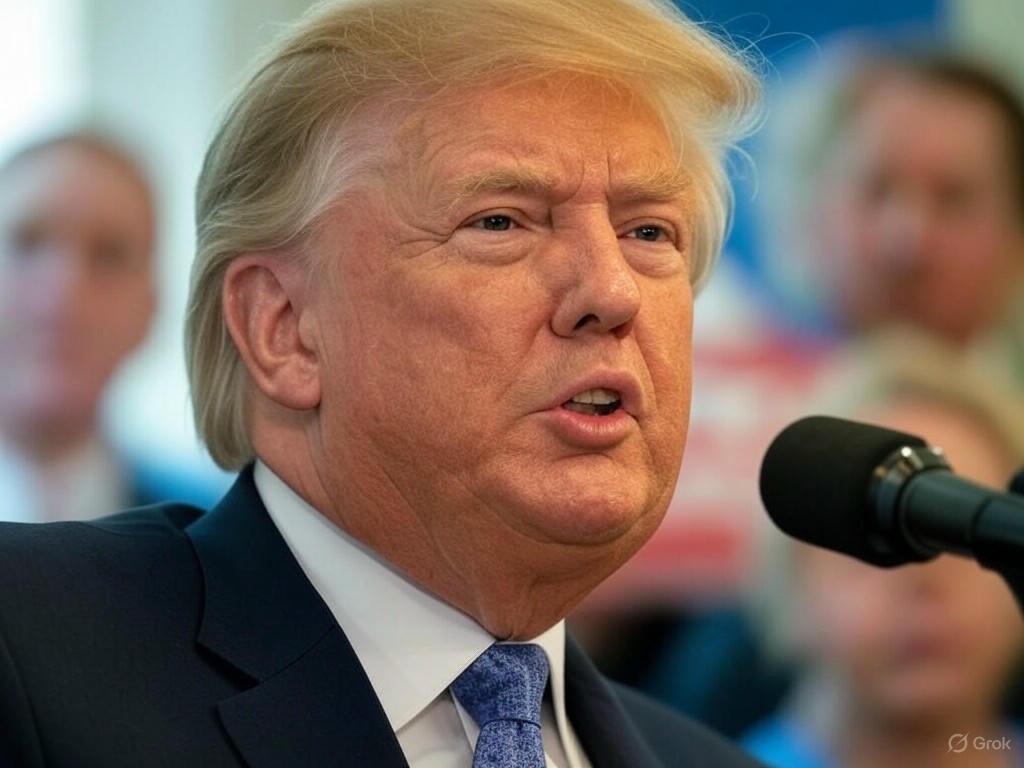In a fiery exchange that has reignited debates over the independence of the Federal Reserve, former President Donald Trump recently unleashed sharp criticism against Fed Chair Jerome Powell. Trump publicly urged the central bank to slash interest rates, accusing Powell of mishandling economic policy at a critical juncture for the nation. This latest outburst, aired on social media and during a public address, underscores a long-standing rift between Trump and the Federal Reserve, raising questions about political influence over monetary decisions.
The timing of Trump’s remarks couldn’t be more significant. With inflation concerns lingering and economic growth showing signs of uneven recovery, pressure is mounting on the Fed to adjust its stance on interest rates. Trump argued that high borrowing costs are stifling business investment and burdening American families, a sentiment echoed by some economists who believe a rate cut could stimulate spending and job creation. However, his personal attacks on Powell, whom he has previously called out for being too cautious, have drawn criticism from those who view such rhetoric as an overreach into the Fed’s autonomy. The Federal Reserve, by design, operates independently to shield monetary policy from short-term political pressures, a principle that many argue is now under threat.
Adding fuel to the debate, a senior Fed official recently voiced support for lowering rates, aligning partially with Trump’s demands but for different reasons. This official highlighted emerging data suggesting that inflation may be cooling faster than anticipated, potentially justifying a more accommodative policy. While this development offers a glimpse of internal consensus within the Fed for a possible pivot, it also complicates the narrative. Trump’s aggressive tone risks overshadowing legitimate economic discussions, turning a policy debate into a personal feud. Market analysts worry that such public spats could undermine confidence in the Fed’s decision-making process, especially as global uncertainties like trade tensions and geopolitical risks continue to loom large.
The broader implications of this clash extend beyond immediate policy outcomes. Historically, the relationship between the White House and the Federal Reserve has been delicate, with past administrations often respecting the central bank’s independence even amid disagreements. Trump’s approach, however, challenges this norm, prompting discussions about the long-term impact on institutional credibility. Some experts caution that persistent political interference could erode trust in the Fed’s ability to act impartially, potentially affecting everything from investor sentiment to currency stability.
As this saga unfolds, the eyes of the financial world remain fixed on the Federal Reserve’s next moves. Will the central bank bow to external pressures, or will it hold firm in its mandate to prioritize economic stability over political noise? For now, Trump’s latest critique of Powell serves as a stark reminder of the fragile balance between governance and economics, a balance that will likely be tested in the months ahead as the nation navigates an uncertain fiscal landscape.
